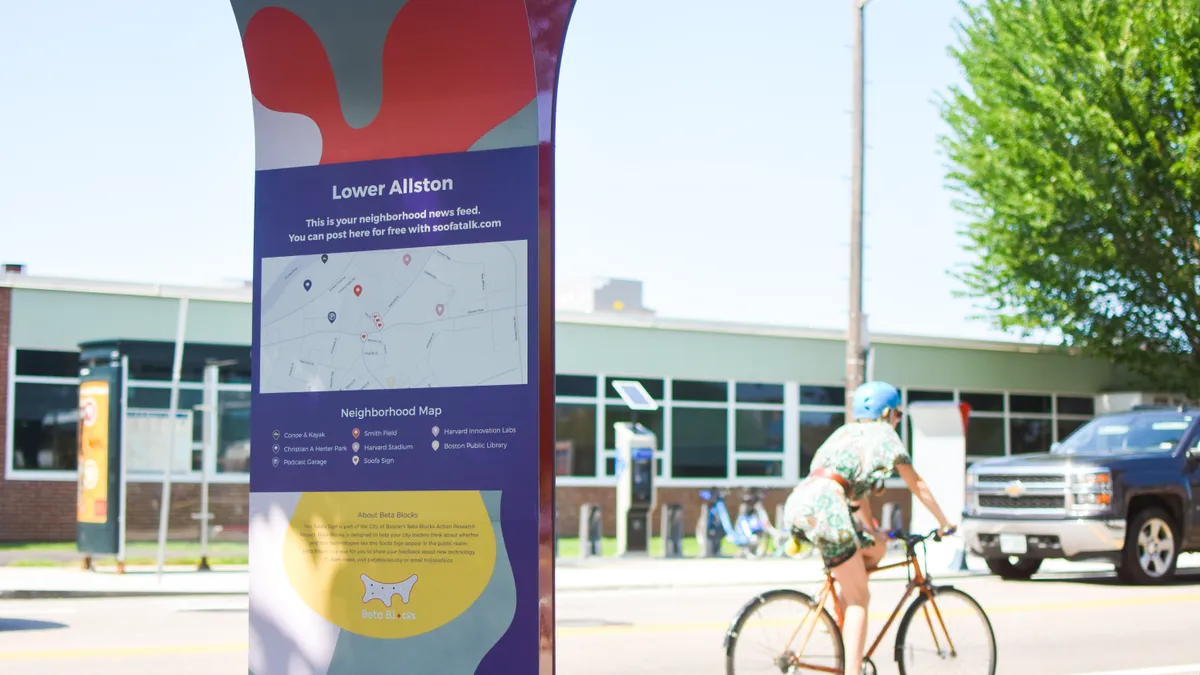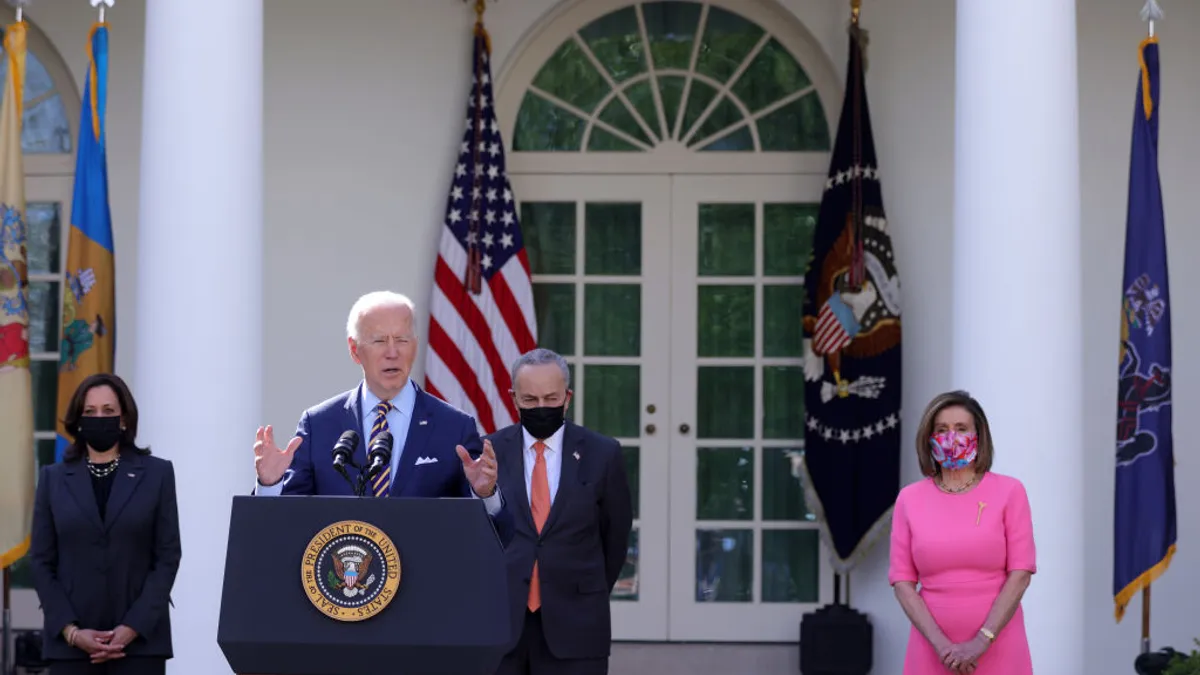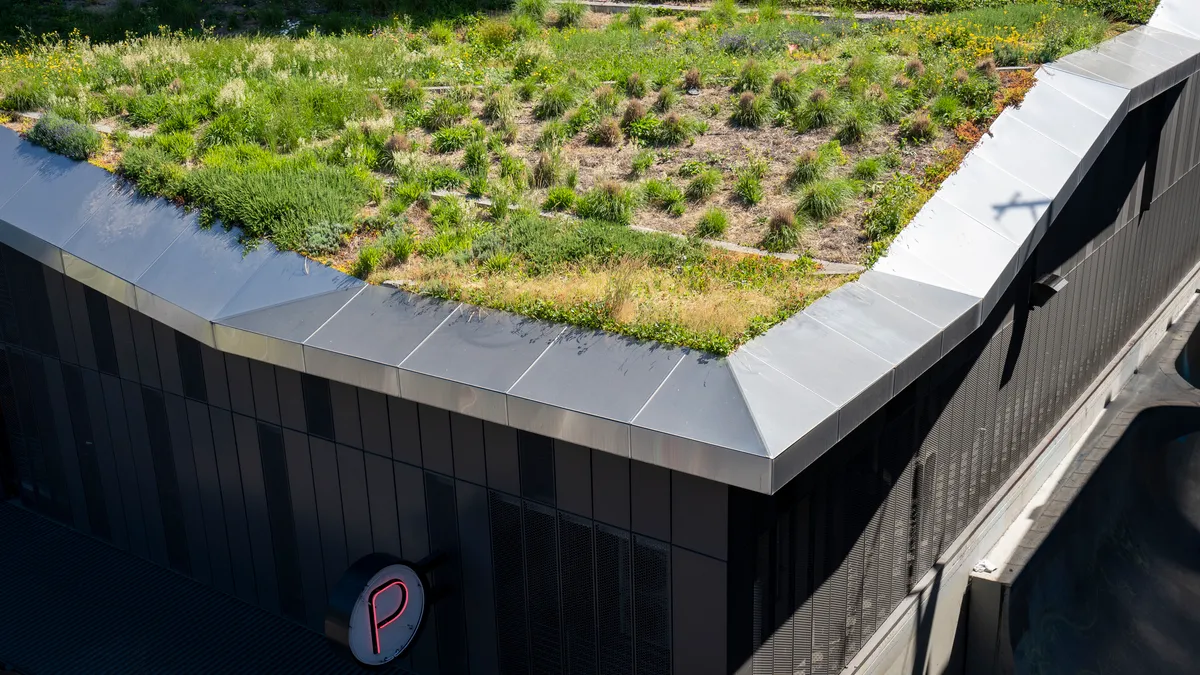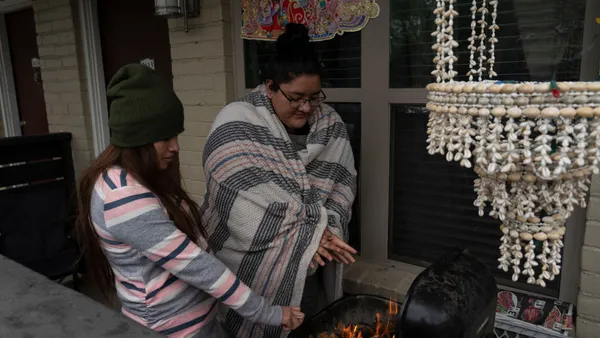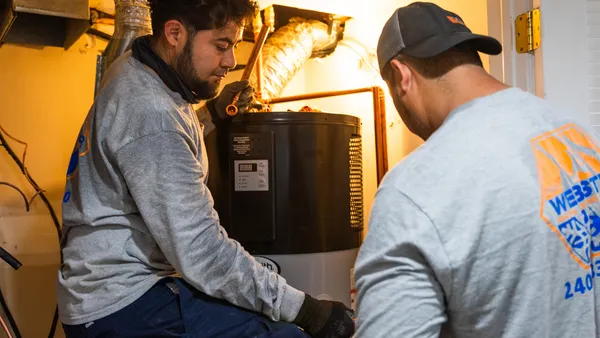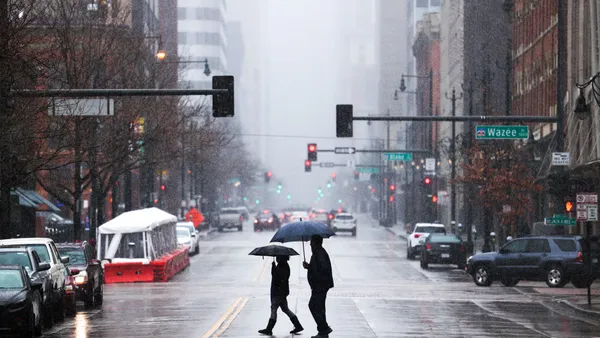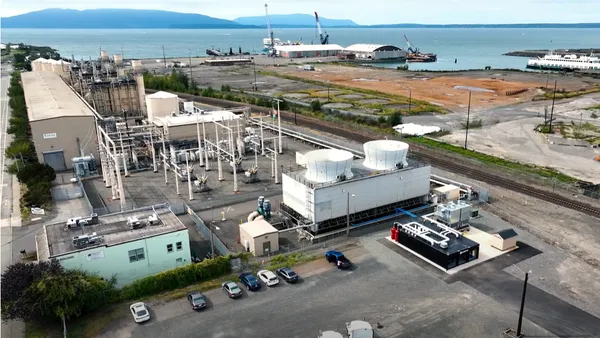Dive Brief:
- Technology company Soofa has deployed twelve solar-powered digital message boards in Boston as part of a 60-day pilot program through Beta Blocks, an initiative run by the city and the Engagement Lab at Emerson College to encourage new approaches to community-led smart city innovation.
- The twelve "Soofa Signs" are supported by ads from small businesses in the areas where they’re located: Chinatown, the Codman Square District and Lower Allston. A Soofa maintenance crew will check the signs weekly, and citizens and local business owners can post their own announcements, ads and messages any time through the Soofa app.
- After the 60-day pilot is over, Soofa hopes to install hundreds of signs in the city with the sponsorship of an underwriter, so that low-income communities can benefit from the technology. Beta Blocks hopes to use this test phase to develop a charter for the relationship between residents and new tech companies.
Dive Insight:
While the phrase "ad-supported" city infrastructure can scare people, Soofa said it's combating that perception through deep consideration of how to make the smart signs in Boston equitable and beneficial to all residents.
Throughout the 60-day pilot, the Beta Blocks Zone Advisories in each of the three locations and Youth Groups will meet to discuss and give feedback about the signs. Community reactions are a crucial element in deciding how to approach technology in public spaces.
"The project is about testing the process of installing tech from technology companies....and giving the city a chance to work out whether they serve the City of Boston's goals or not," John Harlow, smart city research specialist at Emerson Engagement Lab, told Smart Cities Dive.
One issue the groups will continue to monitor is the content moderation policy for the signs, which is all human decision making at the moment, Harlow said. He added that it remains to be seen how Soofa's rapid scaling plan for the policy will work.
One of the most difficult parts of the process was coordinating schedules between local community leaders, city officials and tech companies, Harlow said, but creating ties with communities was essential on two levels.
"We have really strong ties with local businesses and community leaders that have walked by [the signs] every single day. And often we'll get reports [on them] from those people," Dan Schwartz, director of government affairs at Soofa, told Smart Cities Dive.
Harlow also says the process of getting community feedback before the pilot deployed offered unexpected insight.
"People are really interested in maintaining cultural significance," he said. In Chinatown, residents wanted Mandarin signs, and were concerned about signs on the narrow sidewalks with heavy foot traffic. Some residents also wanted the chance to do community content moderation.
"We've had really hard-hitting questions about why some of these technologies might be implemented," the city's public realm director Jacob Wessel told Smart Cities Dive.
This is a question Harlow hopes the pilot will answer, to inform future collaboration with more tech companies.
The Beta Blocks program overall began through a Knight Foundation and Bloomberg Innovation Lab grant in 2017, as a way to encourage civic experimentation on city streets, through community engagement.
"Unfortunately, it's the larger companies with the deeper pockets and the money to spend on extensive lobbying, that in a lot of American cities end up winning contracts," Schwartz said. "Beta Blocks is attempting to sort of level the playing field and also really get community feedback about technology that's been deployed."
The city put out a request for information (RFI) initially, requesting local tech companies to send in information detailing their current smart city initiatives, which was made public to local residents. The program has also focused on engaging citizens through walking tours and a robot block party.
Today in #Boston: Beta Blocks is helping residents explore the role of new #technology in their communities. Don't miss today's free block party to give your input on the future of tech in the city: https://t.co/c1daA7WRTH #BetaBlocksBOS @newurbanmechs @EngageLab #knightcities pic.twitter.com/HH1bCHVIaG
— Knight Foundation (@knightfdn) June 15, 2019
The partnership then drafted and released a request for proposals (RFP) in 2018, calling for ideas from local companies, which Soofa was already a part of. Beta Blocks is currently working with companies like Verizon and nuTonomy and also seeking new partnerships. The city also plans to deploy new technology, like Wicked Free Wi-Fi, in the three designated zones.
Harlow said the city will have to decide in the fall whether or not to continue the program and whether the Soofa Signs, the first technology company partnership, will expand.
CORRECTION: An earlier version of this story misidentified the number of signs Soofa deployed in Boston. The company has deployed 12 signs across three neighborhoods.


